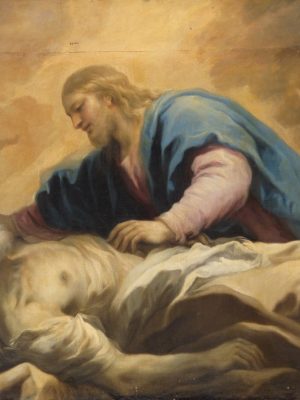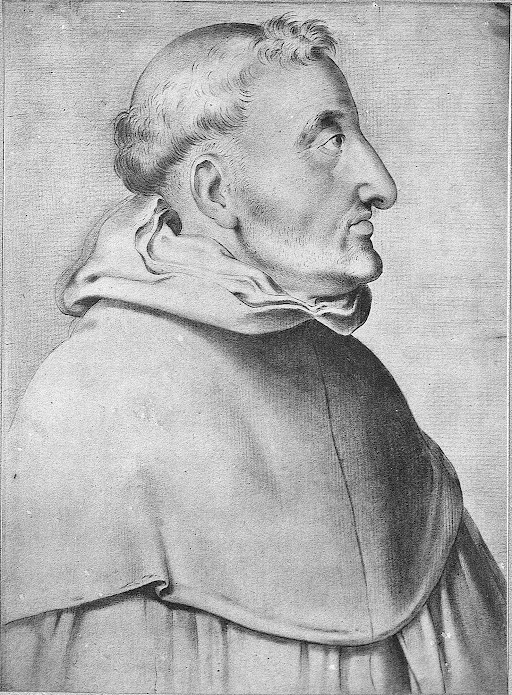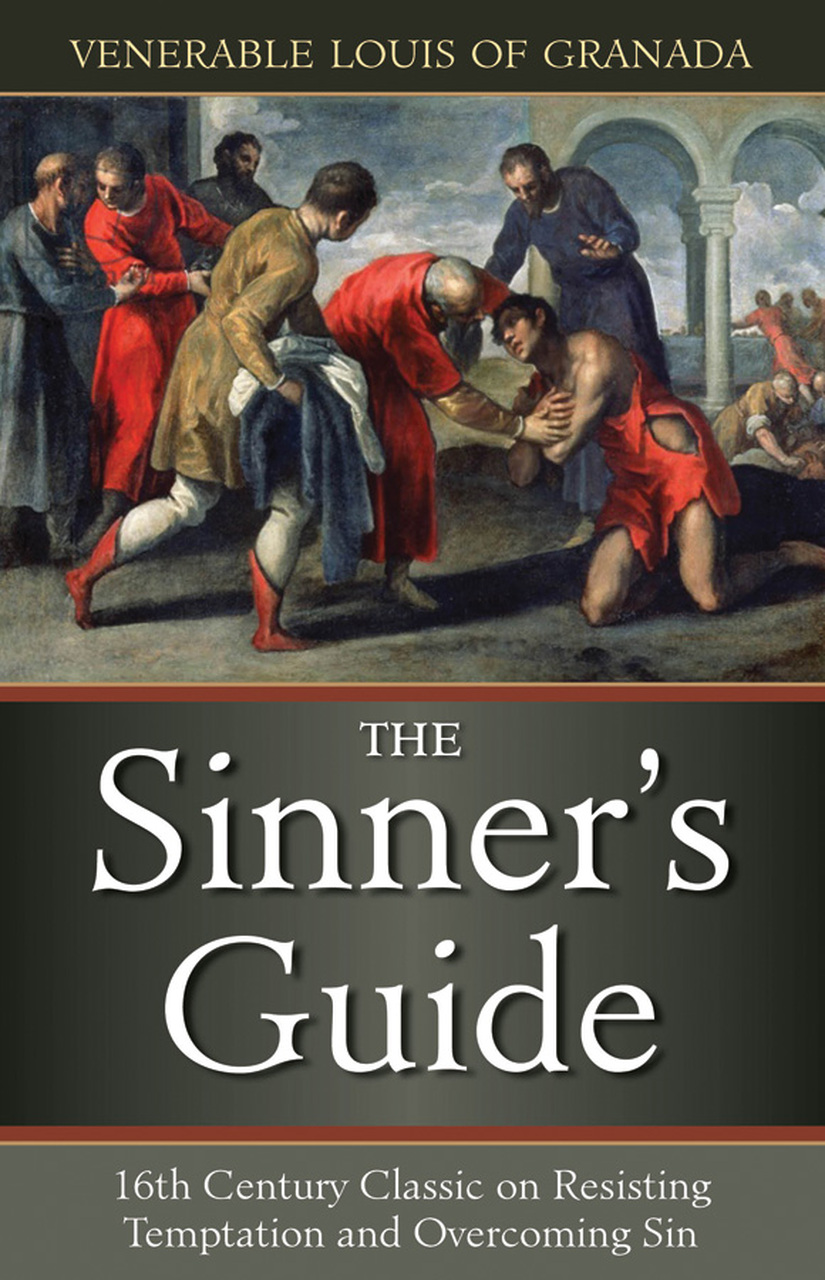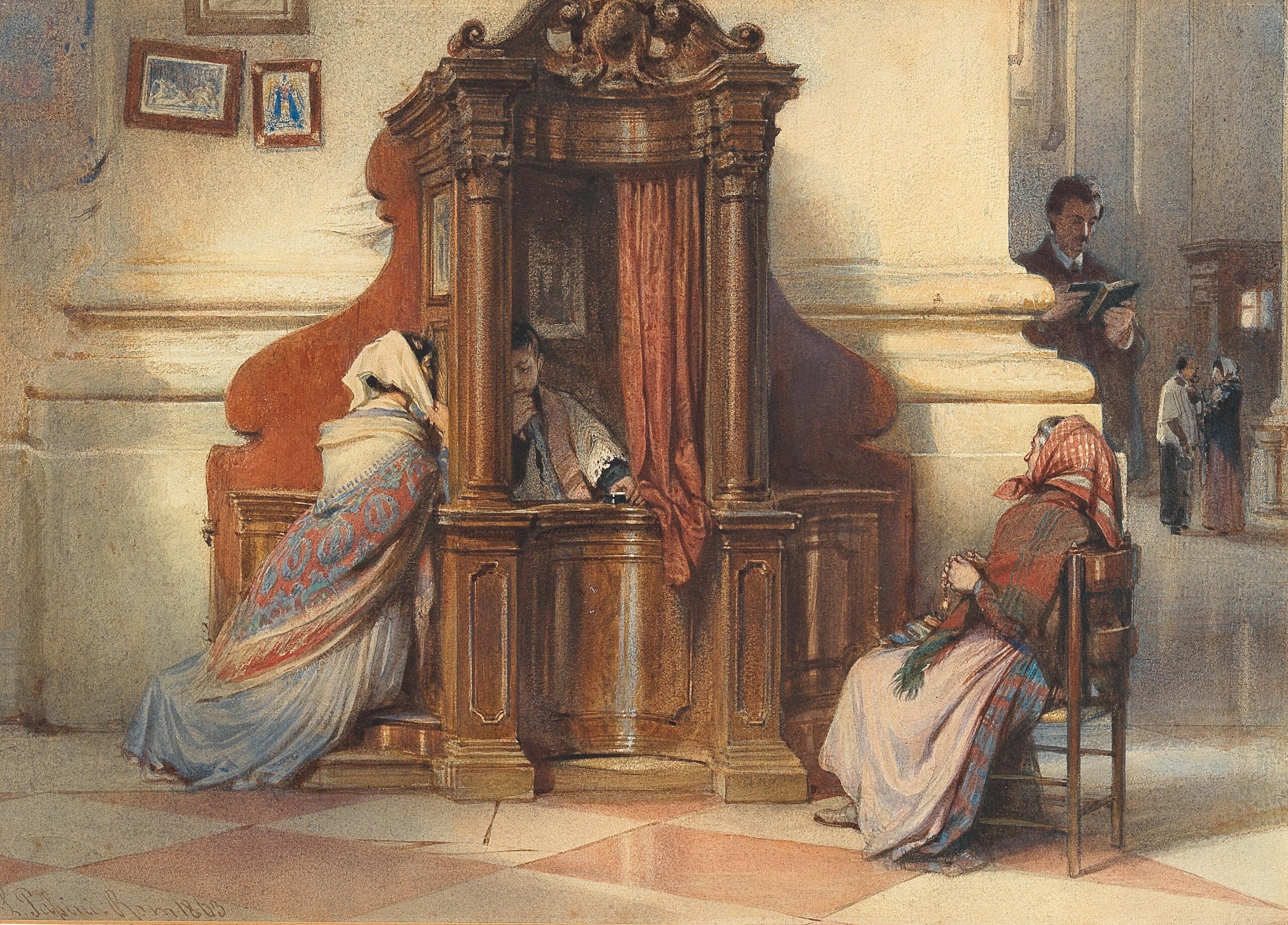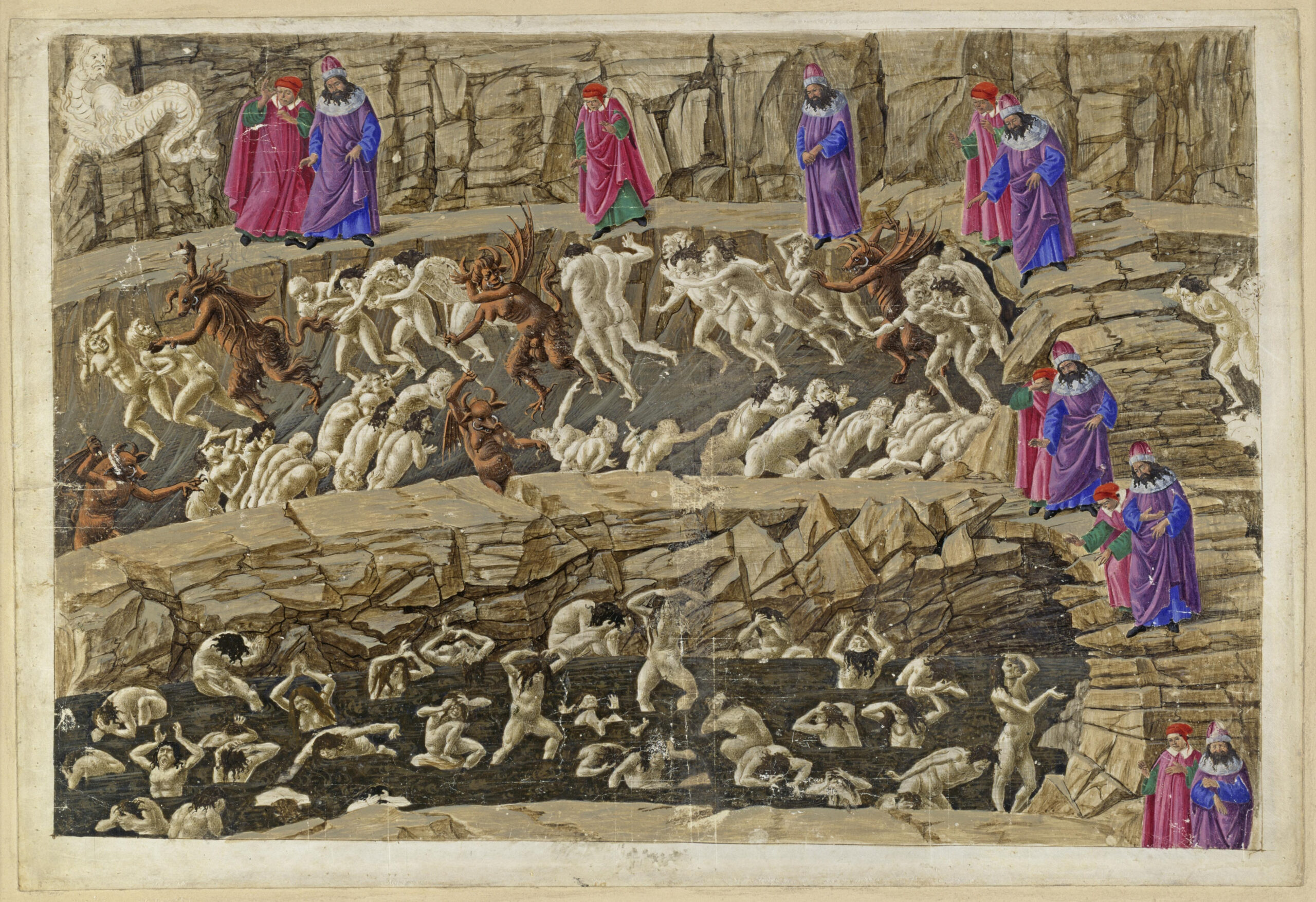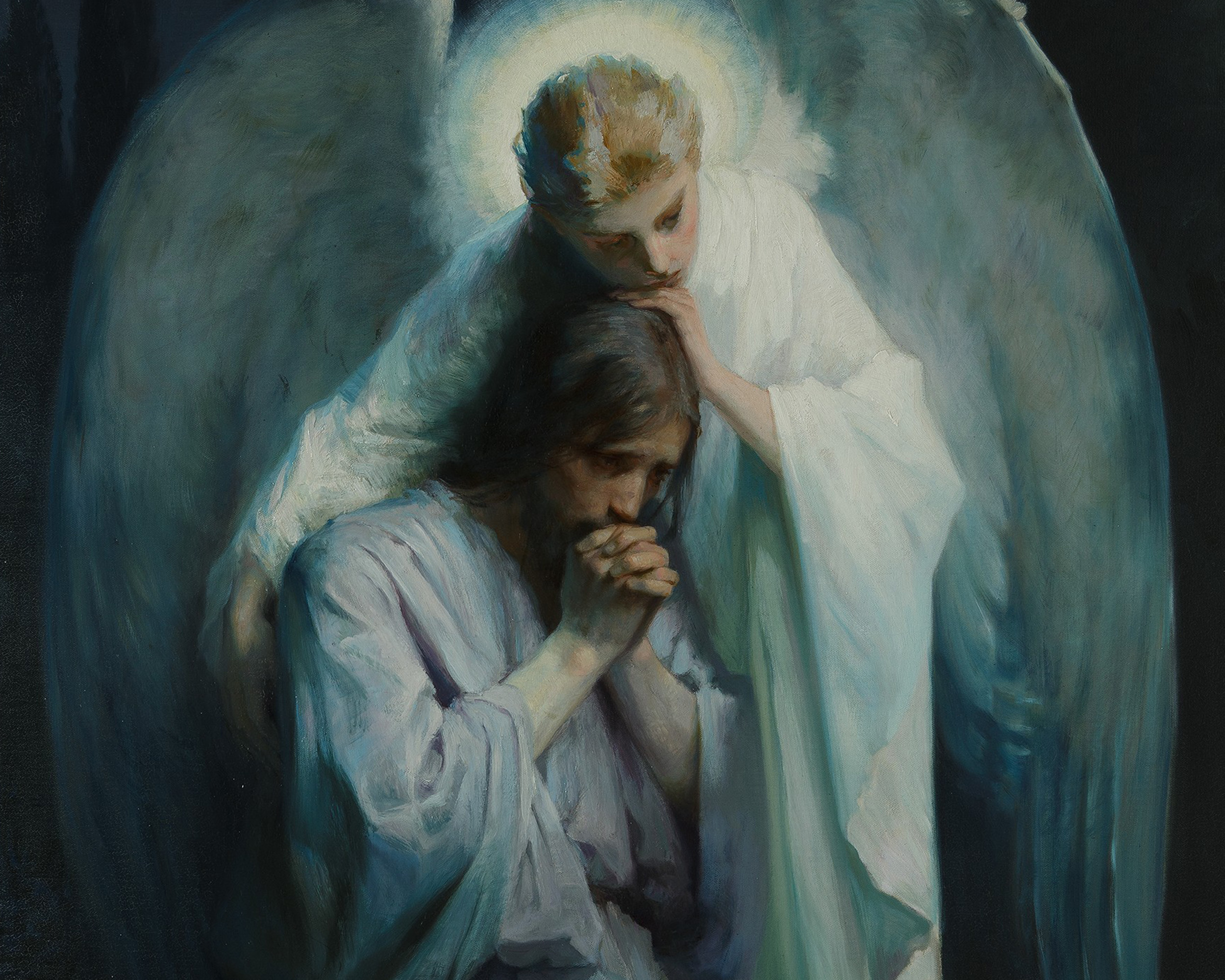For those who pass from this world after living a life of virtue, death is deliverance. God grants those blessed souls a happy death, free from fear. Follow along with Venerable Louis of Granada’s reflection upon the happy death of the just.
The End Crowns the Work
THE end, it is said, crowns the work, and, therefore, it is in death that the just man’s life is most fittingly crowned, while the departure of the sinner is a no less fitting close to his wretched career. “Precious in the sight of the Lord is the death of his saints” (Ps. 115:15), says the Psalmist, but “the death of the wicked is very evil.” (Ps. 33:22). Commenting upon the latter part of this text, St. Bernard says, “The death of the wicked is bad because it takes them from this world; it is still worse because it separates the soul from the body; and it is worst because it precipitates them into the fire of Hell, and delivers them a prey to the undying worm of remorse.”
The Anguish Caused by Inordinate Love
To these evils which haunt the sinner at the hour of death add the bitter regrets which gnaw his heart, the anguish which fills his soul, and the torments which rack his body. He is seized with terror at the thought of the past; of the account he must render; of the sentence which is to be pronounced against him; of the horrors of the tomb; of separation from wife, children, and friends; of bidding farewell to the things he has loved with an inordinate and a guilty love—wealth, luxuries, and even the gifts of nature, the light of day and the pure air of heaven. The stronger his love for earthly things has been, the bitterer will be his anguish in separating from them. As St. Augustine says, we cannot part without grief from that which we have possessed with love. It was in the same spirit that a certain philosopher said that he who has fewest pleasures in life has least reason to fear death.
But the greatest suffering of the wicked at the hour of death comes from the stings of remorse, and the thought of the terrible future upon which they are about to enter. The approach of death seems to open man’s eyes and make him see all things as he never saw them before. “As life ebbs away,” says St. Eusebius, “man is free from all distracting care for the necessities of life. He ceases to desire honors, emoluments, or dignities, for he sees that they are beyond his grasp. Eternal interests and thoughts of God’s justice demand all his attention. The past with its pleasures is gone; the present with its opportunities is rapidly gliding away; all that remains to him is the future, with the dismal prospect of his many sins waiting to accuse him before the judgment seat of the just God.”
The Just Receive the Reward of Their Virtue
As the wicked, therefore, receive at the hour of death the punishment of their crimes, so do the just then receive the reward of their virtues. “With him that feareth the Lord,” says the Holy Spirit, “it shall go well in the latter end; and in the day of his death he shall be blessed.” (Ecclus. 1:13). St. John declares this truth still more forcefully when he tells us that he heard a voice from Heaven commanding him, “Write: Blessed are the dead who die in the Lord. From henceforth, saith the Spirit, they rest from their labors, for their works follow them.” (Apoc. 14:13). With such a promise from God Himself, how can the just man fear? Can he dread that hour in which he is to receive the reward of his life’s labors?
Since, as we read in Job, he has put away iniquity, brightness like that of the noonday shall arise to him at evening, and when he shall think himself consumed he shall rise as the day star. (Cf. Job 11:14,17). Explaining these words, St. Gregory says that the light which illumines the close of the just man’s life is the splendor of that immortal glory which is already so near. When others, therefore, are weighed down by sadness and despair, he is full of confidence and joy. For this reason Solomon has said that the wicked shall be rejected because of their wickedness, but the just man hath hope in the hour of his death. (Cf. Prov. 14:32).
What more striking example of this confident hope can we find than that of the glorious St. Martin? Seeing the devil beside his bed at the hour of death, he cried out, “What art thou doing here, cruel beast? Thou wilt find no mortal sin in my soul by which thou mayest bind me. I go, therefore, to enjoy eternal peace in Abraham’s bosom.” Equally touching and beautiful was the confidence of our holy Father, St. Dominic. Seeing the religious of his order weeping around his bed, he said to them, “Weep not, my children, for I can do you more good where I am going than I could ever hope to do on earth.” How could the fear of death overcome one who so confidently hoped to obtain Heaven, not only for himself, but also for his disciples?
Death is the Hour of Deliverance for the Just
Far, then, from fearing death, the just hail it as the hour of their deliverance and the beginning of their reward. In his commentary on the Epistle of St. John, St. Augustine writes, “It cannot be said that he who desires to be dissolved and to be with Christ endures death with patience, but rather that he endures life with patience and embraces death with joy.” It is not, therefore, with cries and lamentations that the just man sees his end approaching, but—like the swan, which is said to sing as death draws near—he departs this life with words of praise and thanksgiving on his lips.
ooo
This article is taken from a chapter in The Sinner’s Guide by Venerable Louis of Granada which is available from TAN Books.


